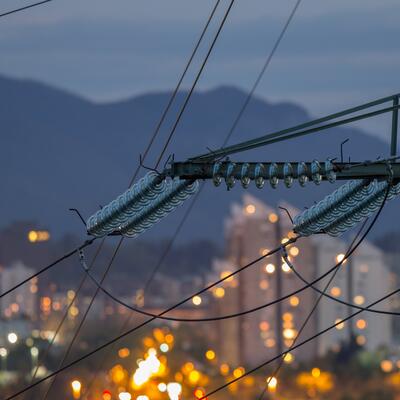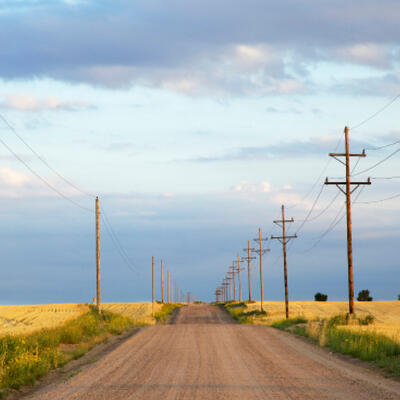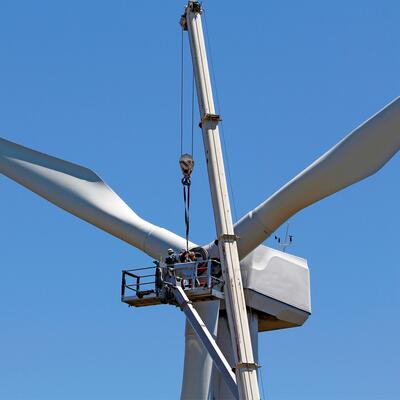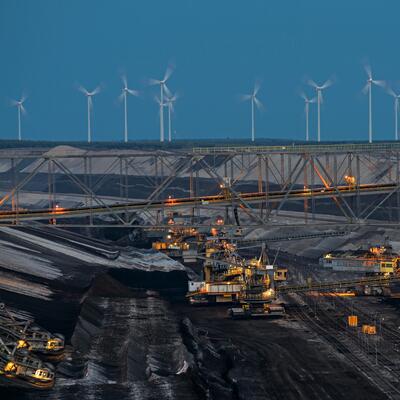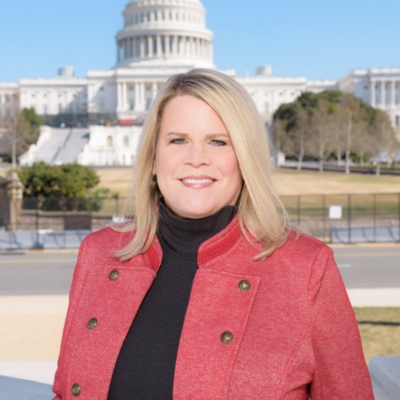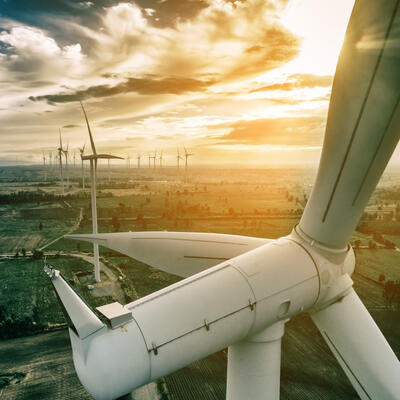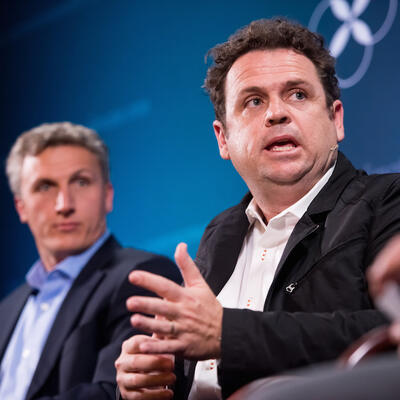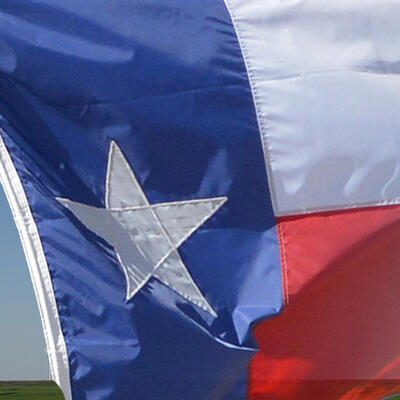
Texas Surprise
Guests
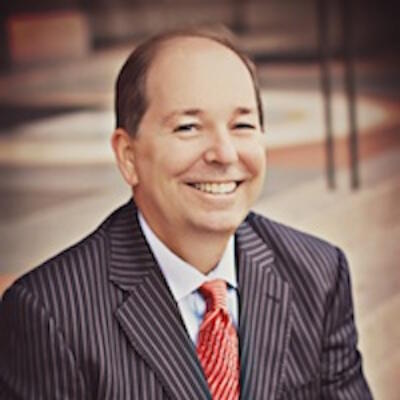
Kip Averitt
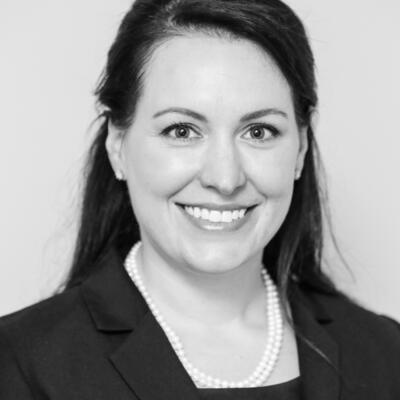
Stephanie Smith
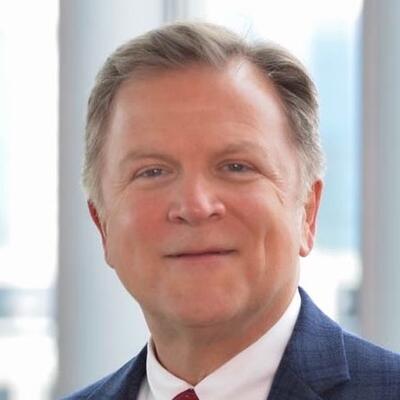
Pat Wood III
Summary
The Lone Star State leads the country in wind power, thanks to legislation signed by Governor Bush; clean energy has breathed fresh air into Texas’ economy.
Kip Averitt, Former Chair, Texas Clean Energy Coalition
Stephanie Smith, COO, Greencastle LLC
Pat Wood III, Principal, Wood3 Resources
Full Transcript
Greg Dalton: From the Commonwealth Club of California, this is Climate One, changing the conversation about America's energy, economy and environment. I'm Greg Dalton. On the show today, we’ll hear surprising stories from Texas. The Lone Star State made its name on oil and gas, but there's more clean energy happening there than many people realize. Texas has more installed wind power by far than any other state. Also claims to be home to the world's largest Earth Day event.
Our guests today are three Texans who will introduce you to a side of their home that doesn't get a lot of play. Kip Averitt is a former Chair of the Texas Clean Energy Coalition. He was a Republican state legislator in Texas for nearly 20 years. Stephanie Smith grew up and was educated in Texas where she worked as a lawyer on energy deals. She's now COO of Greencastle, a startup company that develops clean energy and other projects. When George W. Bush was governor of Texas, he appointed Pat Wood to chair the state’s Public Utility Commission. Pat would later serve in the Bush administration as Chair of the Federal Agency that regulates the flow of electricity across state lines. He currently is a board member of SunPower, a maker of solar cells and panels. Please welcome them to Climate One.
[Applause]
Welcome everyone. Stephanie Smith, I’d like to begin with you. When you started working in clean energy, what did your dad's friends say about that?
Stephanie Smith: It did not go over well. I believe hippie tree hugger was used fairly frequently. But, yeah, it was pretty amazing how, I’d say within about a year the conversation was changing but it was not well received at the beginning.
Greg Dalton: So you grew up in a ranch near outside of Lubbock or –
Stephanie Smith: Yeah, northwest of Lubbock in Lamb County.
Greg Dalton: Okay. And then you start doing energy deals and you come back clean energy. How does it go over with your family first?
Stephanie Smith: Well, they were sort of scratching their heads because I started off in oil and gas. And no one was quite sure how wind entered the conversation but, you know, the wind deal fell in my lap and I was saying it makes a lot of sense. And the first one I did was in Iowa and started having the conversation more with my family about how this was actually impacting farmers up there. And the first couple of deals happened and I think they were scratching their heads for their friends who are putting some turbines on their land in West Texas and then like I’m saying it’s really, it evolved really quickly because the economics were great for those farmers.
Greg Dalton: We’ll get into a little more of that later. Pat Wood, Governor George Bush looked at you one day and said, “Pat, we like wind.”
Pat Wood III: ’96, I remember like yesterday. I was walking out of his office and he told me that and I leaned back - and I was child of the Reagan revolution, young little, you know, yellow tie wearing Republican boy. When, I just look back at him like, wind? You got to be kidding, really? And he said, “You heard me, get smart on it.” So over the next two years our utilities had this public consultation they called the deliberative poll, which was actually Ross Perot pioneered this process of two-day or three-day consultation back and forth, small group, big group, really good process on public policy issues. And we did it on what to do about electric grid in Texas with different groups across Texas utilities wanting to sponsor this.
And at first I thought it was kind of hokey and then I fell into it. Well, by the time we got to Beaumont, Texas which is right up the street from my hometown, big refinery center where oil was discovered in 1901. Old Gary is outside puffin on a Marlboro Red, and we’re talking about renewable energy and he says we need some damn clean air.
[Laughter]
Greg Dalton: And he come up and pushed you in the chest, right?
Pat Wood III: Yeah, kind of right there with a good puff. And I was like, you know, it really is the people speaking after they get educated on renewable energy and energy efficiency. That was the surprise out of that whole process was how much broad public support after learning the pros and cons of everything people really like this. And the poll before and the poll after was dramatically different. So I reported that back to Governor Bush and he kind of gave me that kind of a look you’ve all seen on TV like, “told you so” and we got a bill that opened up the power industry and the rest is history. And part of that was a renewable goal mandate for the state that we’re going to hit 2,000 megawatts of wind by 2009; well, now we’re at 18,000. So it's been a big success.
Greg Dalton: Yeah, he did a lot to lay the groundwork for where Texas is today on wind. Kip Averitt, when you were in the Texas state Senate, you were put in charge of the natural resources, you’re put in charge of a clean-air effort and you liked it because you're a CPA so you can measure it. So tell us about that.
Kip Averitt: Yeah, I’m a little bit of a nerd I guess you'd say. And I like to see results. I like to measure results in, you know, some of the concepts we deal with in public policy are vague concepts with no real way to measure results. But when it comes to clean-air there's a scientific way to measure your results and so when we enacted policies we could actually track over time whether or not they were working or not. And our clean-air programs happened to be very successful.
It was a period of time -- jump forward just a few years what Pat was talking about when George W. Bush was running for president. The loyal opposition made a big point to talk about how dirty the air in Texas was. Which was historically true, but currently maybe, maybe not as factual. And even since then yet another miracle in Texas about how clean the air and our nonattainment zones have become over the last 10 and 12 years. So that part of me about would like to see results manifest very well in the clean energy world.
Greg Dalton: Greg Wortham is the former mayor of Sweetwater, Texas and is a huge proponent of wind energy. He says wind could be the economic engine that revitalizes the entire Great Plains region. Let’s listen to former Mayor Greg Wortham.
[Start Clip]
Greg Wortham: My name is Greg Wortham. I'm the executive director and founder of Texas Wind Energy Clearinghouse and I was the mayor of Sweetwater, Texas from 2007 to 2014. We’re the greenest place on the planet. I got 3,000 megawatts of wind in my town. There’s no community like our area that create as much megawatts of green energy as we did. That’s ranchers and farmers who are used to using their land for energy. They’ve been caring for the same land for families for a hundred plus years and the landowners now we’ll have to use their land efficiently for wind and solar and oil and natural gas and cattle and agriculture and crops. There's more landowners who’ve want it they can fit into the grid. We have so many new schools, I mean unlimited new schools and campuses would've been closed if the wind didn’t come along.
I wanted this people to want red, white and blue solutions, not red solutions or blue solutions. That’s why we got all the cast we’ve got as that people were trying to pick a side. I have to be for oil, so I can’t be for wind. I had to be for wind so I can’t be for oil. And that’s not getting us anywhere. Wind region is up and in the Great Plains, so if you look at our electoral map, it’s red. 75% of all wind products are in Republican commercial districts. And so we’re getting it done at levels that nobody else is getting it done by not sort of having forays about it, if we make a big stink about it or, you know, march about it, the handful of people who could block in the legislature will say, wait a minute, I’m told I don’t like that I should create an opposition to that. I should create a bill. We’ll stop it.
[End Clip]
Greg Dalton: That was Greg Wortham, former Mayor of Sweetwater, Texas and Executive Director of the Texas Wind Industry Clearinghouse. Pat Wood, stop it, he’s just saying, you know, stop all the fuss and all the parties and fuss and let’s get on with it.
Pat Wood III: Greg is a force of nature. He’s his own windmill. We love him. He rose from nothing and saw this great potential that wasn't being taken advantage of by his city and said, damn, I’m gonna run for mayor, and he won. He came out of this small town where my mother was born there.
But that politics thing is, it tends to I think people who like the status quo are real good about creating the strife. And I think in this particular industry you’ve got incumbents whether that’s utilities or incumbent power generated whatever, you don't want us to watch renewables and so they just create these strife and, you know, unfortunately our last president was very strongly in favor of renewables and that credit a more pronounced backlash than existed during the Bush years. And so it was a pretty lonely place to be a clean energy supporting Republican for the last eight years because everybody looked at you and said you left the reservation and it was like, no, somebody claimed my reservation, I’m claiming the land back.
It’s red, white and blue I like that answer. I haven’t used that. Everybody says purple, it was red, it was blue, it was purple but I like red, white and blue. I think that works even better.
Greg Dalton: Kip Averitt, how about that we just heard the mayor say that people are told to think a certain way. So I must be against oil, right because my people are. And I must be against wind because my people are. How do we get beyond that?
Kip Averitt: Money.
[Laughter]
What it comes down to those folks and you would be hard-pressed to find somebody in Sweetwater, Texas that voted for Barack Obama. You would be hard-pressed to find them. And yet they recognize the value of the resource that’s blowing over their property and beaming down on their property. It’s an economic issue out in West Texas which is impoverished, has been impoverished. But this renewable energy search is bringing it back to life and you heard them talk about the new schools and the property taxes and stuff like that. That is a real-time, tangible result that people can feel and see. And over a period of time, you know, attitudes change.
When I was in office, I would tell folks 30 and 40 years ago in Texas, if you were concerned about the environment you were a communist and you could not get elected to public office. Today in Texas if you're not concerned about the environment you’re a goober and you’ll have a very hard time getting elected to public office. Times have changed, soccer moms want their kids to play in clean-air and have clean water and they pay attention. And the business community recognizes economic value and the tangibility of what was once a foreign concept, an Austin hippie thing has taken hold, and people are seeing great benefit from it and changing attitudes.
Greg Dalton: So Stephanie Smith you described some of, your dad was a rancher. Some of the friends and neighbors went through this transition. Was it really hard for them or it’s like, hey, I can put wind turbines on my land and get free money.
Stephanie Smith: Yeah, I think it was just hard for the first couple of them and I salute them because it had to be brave. I think Kip is right, it’s money, it’s practicality. We’re talking about an area that has a lot of dry land farming and has gone through a very serious drought which we know a lot about here in California as well. I think a lot of these farmers it’s just kept them afloat full stop. So I think politics only restrict things I think so far and once their friends started telling them how this was working for them it was easy I think to get on board and I can’t tell you the number of phone calls I got from my dad or friends of my dad asking me to help them get a turbine on their property.
Greg Dalton: Right and we heard the mayor say that there's more people wanted this, it’s possible now sounds like there's more people who want to generate wind and solar, there’s too much of it. How is that working out?
Stephanie Smith: Absolutely and I think we've overbuilt but we're now putting new transmission lines. There's a new one that just went into West Texas in the last couple of years, right? Pat would know better. Yeah, and I know, a friend of my dad just was calling me the other day to look at a solar contract because he’s about to put a whole bunch of solar on his land up there. So, you know, I think we’re creating solutions.
Greg Dalton: And when these ranchers from Texas call you and say I want wind or solar, is climate part of it or is it all about the money?
Stephanie Smith: Well, I think, you know, we don’t like to talk about it maybe in the same terms that maybe we do on the East Coast and West Coast. But at the end of the day you’re talking about people who have always been stewards of the land that's something that we’ve all respected. We've grown up on farms and ranches out in the places with the best wind and solar resources. And so it comes naturally, it just may not be using the same parlance.
Greg Dalton: Sure, and there’s big differences Pat Wood in terms of the language. You go back and forth between Texas and California, you kind of put a little, change your language a little bit when you go between the two places? Because there is very different language use in those places about what's causing it.
Pat Wood III: I learned as a federal regulator during the California energy crisis a decade and half ago, 17 years ago. That they see right through it out here. If you try to speak Californian with this accent, it doesn’t work. So you just talk the same language. Honestly, it is a mixture, I think it's like I view climate as a subset of the clean energy revolution as opposed to the other way around. And maybe that’s where maybe I’m a little different but I think that's kind of how it works back where I’m from is there are number of reasons that people come under this umbrella of clean energy. Whether it's good for our farm, it’s good for our kids there. It's good for the climate; it’s good for the economy. It’s good because it's a geeky thing and everybody likes the new technology which my kids that’s why they’re kind of green not for any of these other reasons. So there's just the big umbrella that clean energy has benefited from the last really generation and climate is certainly a very prominent part of that; more here than back home.
Greg Dalton: In 2008, Barack Obama and John McCain basically agreed on approach, climate was a concern it should be addressed through a market mechanism called cap and trade. Since that time the country the parties have gotten further and further apart. The public recognition Republicans and Democrats has grown, but the parties are further apart. Pat Wood, if what we’re hearing that this is good, it’s economics, it’s smart. Why is that not reflected in our national political conversation?
Pat Wood III: We don't take the time like this Marlboro smoking Gary and Beaumont did to listen to two days of pros and cons on stuff. We don't have the attention span in our country for anything important and I regret that. I’m thrilled that you’ve devoting an hour to this here today, but if I can get five minutes of somebody's time and on any issue, it would be important. I mean I love to see, I heard Trump today wants to cut the small business tax rate to 15%. All I could think of was boy, carbon tax will sure pay for that, won’t it. There are great ways to use the horse trading, I hope someday that could be done but, you know, I think again there are people out there and I’m not gonna be an anti-crony capitalist although I think that's a cancer on the nation. But there are a lot of people who benefit from not solving a problem. And so you need to sometime trace the dollars and advocates all the way back to, you know, who's the puppet master there. And I think there are plenty of vested interests in the country that don't want to see these things get advanced.
Greg Dalton: Kip Averitt, you serve in a Texas legislature. Is that true, that sort of funding of elections because there is, some people think there is a disconnect between elected officials what they say and often what their constituents think. And they don’t pay a penalty because it's not a top voting concern for voters, right. They vote on either social issues or pocketbook issues and the environment and energy doesn't tilt the balance in elections, is that fair based on your experience?
Kip Averitt: Yeah, yeah, I think that's entirely fair. That's not a front burner issue in a primary election. In Texas, all of our elections are decided in March in the primaries. And you’re right, the hot button, the red meat Republican issues, the social issues and immigration and sanctuary cities and all that kind of thing are what drive the elections there.
And I’m not sure if it's a bad thing or not. I’m not a real big fan of two primaries deciding who we get to vote for in November. But, I'm not sure that it's not a bad thing today in the environment we’re in that clean energy is not an issue in the Republican primary. Because I fear that it would not have the outcome that we would want.
Greg Dalton: So you like the fact that it's not on the political radar agenda so you can fly below and get things done away from politics?
Kip Averitt: You absolutely, I advise a lot of folks that have business in the Texas legislature on this issue, use the proper terminology and just understand you have to understand where the members are. Our best friends in clean energy are the rural Republicans the folks who have wind in their backyard they understand the value. And it’s spreading and it’s kind of like a fungus or something but it's spreading to the suburbs and other places where Republicans find their voting strength but it's a slower process. And frankly, you know, the big numbers are in the cities and they don't see the economic benefit of a plant on their property. However, they do and perhaps there's a better way to communicate this. They do see an economic benefit on their utility bill. Today in Texas renewable energy is dirt cheap.
Pat Wood III: And I've got a two-year contract that I got off in the Internet with company called Discount Power.
Texas is fully open for retail choice like California had the promise of being until 2000 but and should be again I think. But we can shop around for whoever we want and pay the price that we negotiate. But my full rate is 7.2 cents a kilowatt hour that's for generation, transmission, distribution for a two-year 100% renewable contract. And if I got a nonrenewable contract I think it be either a tenth of a cent more or a tenth of a cent less. And I was paying over $.10 when it was, when I was a regulator I was paying $.10 for the companies I regulated. And now 15 years later, it’s 25%, 30% lower than it had been. So it’s how you speak to people.
You're right, just let them look at the outcomes of the facts and then forget the politicians, forget the utilities, just have the customer and the supplier meet right in the marketplace. I love that solution. I think that's a way to depoliticize it is deregulate the industry to where customers can vote with their dollars. Because customers even in my state are hell a lot greener than the government and the utilities ever will be. And, and I think that's probably true in California from what I understand people's preferences here very much toward a cleaner, greener environment. And your government has been responsive but it's just been expensive to do it that way but I just, again the deregulation of the marketplace is I think a helpful way to depoliticize some of this stuff.
Greg Dalton: So you’ve just, Pat Wood, and Kip Averitt, you just described a quiet revolution in rural America going toward clean energy. Is that confined at Texas, is it happening in other red states, Pat Wood.
Pat Wood III: I think it's right behind us and there's not as many people in house or in Texas. So there are 30% or 40% of their kilowatt hours are – that whole middle area from really Manitoba, Saskatchewan, down to probably north half of Texas is just the Saudi Arabia of wind.
There’s a lot North Dakota all the way down to the states and mountain ranges and then you get solar, of course over toward here in the south western quadrant of our continent in northern Mexico is where you get lot of solar. All these areas are rural, I mean the cities aren’t, I mean you can put rooftop panels, and I saw a few on the plane when I came in here today, it’s great to see. But yeah, the central part of the nation which is interestingly the very red map on the election night, but is very, is very much where this wind and increasingly now solar energy is coming from.
Greg Dalton: Kip Averitt, this is gonna hurt the financial results of some utilities. Some people, who’s pushing back against this?
Kip Averitt: Well yeah sure, anytime you have a winner you have a loser. And in our state the coal plants are shuttering. We expect up to 60% of the coal plants could shutter by 2022, which is good news and bad news and it creates reliability concerns. But studies done show that Texas is thanks to leadership past and current capable of handling those reliability issues, but it's the coal sector that's getting edged out by natural gas and renewables in our state.
Greg Dalton: Stephanie Smith, I want to talk about some of the impacts of climate that are happening in Texas. And your dad sold his cattle herd in part because he was concerned about water. So tell us about that decision and what that mean.
Stephanie Smith: Yeah, and I think he wasn’t alone. I mean water is, you know, the next I guess biggest thing that we have got to address. And it’s not, you know, it’s farming and it’s ranching. And a lot of I think a lot of ranchers sold their herds especially in this last drought because they weren't able to, you know, have enough to graze them. So we’re gonna have to think through that. And the same with, you know, for farming as well needed both. And, you know, we got to pump the water up if you’re irrigating and that will cost money from electricity cost standpoint, you know, and just, so that impacts them again, the farmers.
Greg Dalton: And was there a climate connection, yeah I remember interviewing Boone Pickens here on the stage. We got to water and that kind of like, oh this is right, you know, this is where it gets, you know, visual and visible the climate impact. Would the people connect climate and the drought?
Stephanie Smith: I think again it’s different words, right. I don’t know what you guys think about this but I think it's very much the fact that they see it happening and they want to do something to improve the situation right now. Whether they're going to agree with me on the idea that this is caused by climate change that we should address by throwing a lot of dollars behind from a federal government standpoint, probably not. But, you know, I think we're going to agree if we talk about different things that we can do today to improve the situation on the land and the farming and the water conservation.
Greg Dalton: Pat Wood, in California and in Texas we’ve gone through too little water and too much. There have been times in Texas where 19 inches of rain have fallen in 24 hours and are termed rain bombs it just overwhelms municipal systems. California went through the worst drought in like thousand years and this last year we have tremendous amount of rain and erosion and flood going on. So this is exactly what scientists predict going from volatile extremes of too much; the dries get drier the wets get wetter. How is Texas dealing with this?
Pat Wood III: Well water issues are primarily a dry West and I live on the coast in Houston so, we’re pretty, we’re the 19 inches that was back before I lived there. But they’re just now finishing all the remediation these humongous culverts that are 20 feet below the street to, you know, all the rain sort of storage. And I mean you just plan ahead for, you know, hurricane issues too. I mean it can either come in from the gulf or come down from the sky.
But, you know, so the coast is wet, the inland where all the wind is. Although there is more and more coastal wind, it’s a separate issue. But the inland has always been relatively arid but really was dramatic I think was Stephanie was talking about what her family went through it was very arid back 2011. Houston had no rain for 90 days. A lot of people woke up then and began to think, uh, something is going on here. Of course then it all rains again everybody forgets, it’s a short-termism and I think it’s the biggest probably the largest problem for this particular issue to stay on the front burner is that it will change. And people go like yesterday I was at soccer game for my kids and some gal next to me was from the county next door. And she said, “honey, if this is climate change, sign me up.” And it was a gorgeous day; it was, you know, the clover blooming in the field. I just kind of smile the one smile and just move on, you know. Hey, great goal.
Greg Dalton: Yeah, yeah, you’re not gonna change her mind. If you’re just joining us that’s Pat Wood, former Energy Regulator under President George W. Bush. We also have Stephanie Smith, a clean energy entrepreneur and Kip Averitt, former Texas State Senator.
I’m Greg Dalton and we’re gonna go to our lightning round. Brief questions and brief answers, we’re gonna start with association and I’m gonna mention a noun and you're going to tell me the first thing that pops into your mind unfiltered. And one-word or one-phrase answer and Pat Wood, Berkeley.
[Laughter]
Pat Wood III: My great-grandmother’s sister went there to college. So I have to think Aunt Alma.
Greg Dalton: Okay and –
Pat Wood III: I know you want me to say Anne Coulter but I’m not gonna do it.
Greg Dalton: Stephanie Smith, Enron.
Stephanie Smith: The core beginning of the clean energy industry.
Greg Dalton: Kip Averitt, Jerry Brown.
Kip Averitt: Crazy man.
[Laughter]
Greg Dalton: Pat Wood, hydrogen powered cars.
Pat Wood III: Nonstarter.
Greg Dalton: Kip Averitt, robotic cars.
Kip Averitt: Thing of the future.
Greg Dalton: Stephanie Smith, men in the energy business.
Stephanie Smith: Well, let’s see. Too many but getting to equality.
[Laughter]
Greg Dalton: Okay, this is true or false. Stephanie Smith, your mother forbids you and your father from talking about climate change?
Stephanie Smith: True.
Greg Dalton: True or false. Pat Wood, you get invited to fewer cocktail parties in Texas since you got involved in clean energy?
Pat Wood III: True.
Greg Dalton: Kip Averitt, true or false. Fossil fuel executives who deceive the public by hiding climate facts should be held accountable?
Kip Averitt: True.
Greg Dalton: Stephanie Smith, you sometimes hide your Texas roots and accents now that you live in California?
Stephanie Smith: True.
[Laughter]
Greg Dalton: Pat Wood, true or false. President Obama did a good job getting the U.S. economy out of the great recession?
Pat Wood III: I’ll say, true.
Greg Dalton: Stephanie Smith, true or false. If you owned an oceanfront home, you would sell it soon?
Stephanie Smith: True.
Greg Dalton: Sea level rise. Kip Averitt, true or false. All elected officials run scared?
Kip Averitt: True.
Greg Dalton: Last question. Pat Wood who spends his time between Texas and California. True or false. Pat Wood, Californians are better lovers than Texans?
Pat Wood III: Well, I’m married to a Texan so, false.
[Laughter]
Greg Dalton: Okay, there we go. Let’s give them a round for getting through that lightning round.
[Applause]
[CLIMATE ONE MINUTE]
Announcer: During his three terms as Governor of Texas, Rick Perry was credited with jumpstarting that state’s renewable energy industry – in contrast with most of his party leaders. When he visited Climate One in 2014, Perry was asked how, in rejecting climate science, the Republican Party could ever be brought on board with the clean energy economy. Perry’s reply? That innovation is more important than ideology.
Rick Perry: There are really two questions out there. One is, you know, is the climate changing? If the climate’s changing, why is it changing? And if man’s engagement is the reason it’s occurring, then we need to have the solutions to that. If it’s not, then everything’s gonna be fine, but if it is we need to be able to have the answers to that. And my great concern is that policies that are put in place in Washington D.C. that can strangle the economy of this country jeopardize our ability to innovate. America has always been about creating innovations to address challenges that we have and then we sell those innovations around the world.
That’s our role and we cannot do it if we strangle our economy, if we put our economy at jeopardy. So, for me that’s substantially a bigger place for us to spend our time and effort rather than trying to divide this country into, you know, you’re wrong and you’re right or vice versa.
Announcer: Former Texas Governor Rick Perry, now serving as U.S. Secretary of Energy. He spoke with Climate One in 2014. Now, back to Greg Dalton and his guests at the Commonwealth Club.
[END CLIMATE ONE MINUTE]
Greg Dalton: Let's talk about the jobs because we haven’t talk quite about the jobs impact. Pat Wood, we talk about anecdotally ranchers who are putting solar or wind on their farms. Where are the green jobs in Texas because ultimately that’s what Americans care about?
Pat Wood III: West Texas has a big University in Lubbock is Texas Tech. And they have a full program now that has various aspects of renewable energy from financed engineering to operations. And it's a big certificate I’ve actually spoken in one of their programs. So the jobs that come from that are not only in construction. Construction like anything else comes and then it’s finite and then it ends. It’s the operation and maintenance.
The bad thing for jobs is windmills are pretty damn efficient. They need to be cleaned and oiled and checked every now and again but it's not like running a coal plant. Same thing with solar panels yet and if it don’t rain too often you need to dust them off, but we even have a robotic thing that does that. So the jobs in that maintenance are actually they’re more streamlined than they are on coal and nuclear plants which would be the most labor-intensive. Gas plants hit or miss some of them newer ones are pretty well and pretty efficient. But the jobs are there, I mean if you got 19,000 megawatts of wind now, well 18 and plus about 1 gigawatt of solar.
Greg Dalton: What does that mean – I don’t know what a megawatt is.
Pat Wood III: Well all of Texas, on the hottest day of last year, all of Texas used 65 gigawatts of power at the peak hour. So 19 out of that is renewable. So that was basically zero when I was, when I left my job in 2001. So it’s come in a hurry. A big welcome went out, good legislators that from both parties that kicked the door open and say come on in and they did. The jobs have been consistent because the growth has been in the construction side. I've been involved in expanding the transmission grid. So the grid went up through Stephanie's home county and above there was the sweet spot of wind in Amarillo, Lubbock that area kind of north in the little Panhandle part of Texas is the sweetest wind spot in our state. We expanded the grid to pull that in so a lot of towers are going on that. That was the $7 billion investment just in the transmission grid. Now California has made some investments in their wind Tehachapi being a good example south of here over the past 10 years as well. So there's a lot of good stuff on the infrastructure front that you all are doing in other states as well to enhance this. But those jobs are, you know, those are good solid paying construction jobs that require financing to get it done. Obviously you can't pay for this stuff with trading stamps; you got to get it done correctly. But the ongoing maintenance obviously is really the sustainable jobs here. So maintaining the power plants, the power line is the same as it ever was. It's just in a different part of the state.
Greg Dalton: Kip Averitt, can someone who lost their oil and gas job get a job in wind or solar?
Kip Averitt: Yes. As a matter of fact there are some really good examples of folks in the manufacturing sector in our state that once produced a widget for the oil and gas industry that are now producing widgets for the wind industry. And you see that quite a bit. Last year there were 31,000 jobs in Texas in the renewable energy sector and growing. So the jobs are there, the companies are there, you know, we were visiting earlier. When the first wind farms started coming to Texas they were, we were importing everything. Everything was made in Germany or some other state and folks, and Texas entrepreneur state folks saw an opportunity to make money. And now there are 500, 600 companies that are doing their daily business in the renewable energy field and it's growing quite steadily.
Greg Dalton: We’re talking about clean energy in Texas at Climate One. My guests today are Stephanie Smith, a clean energy entrepreneur. Kip Averitt, former legislator in Texas and Pat Wood, who’s a board member of the solar company, SunPower. I'm Greg Dalton.
I want to talk about fracking. That's something that's this happening a lot, technology that's powering a lot of natural gas is driving electricity. Pat Wood, you used to be in charge of the agency that regulates that nationwide. Is that gonna continue and can renewables actually compete with natural gas at some point they get cheap enough?
Pat Wood III: Well the game now is renewables and gas. I mean coal, nuclear, and I think even large-scale hydro are just sitting on, they’re in the history books. I mean they’re looking on and, you know, still around but by base and large it's gas, wind and solar. There’ll be probably some other renewables that develop over the years ahead. Storage is a big one to come in as well. But fracking, you know, I've said publicly elsewhere it's a gift from God. I mean we really have been benefited by it. Curiously enough the same tax credit that’s used to subsidize wind today, Section 29 was used back when I was a young engineer to subsidize gas production in tight sands or shale formations. And that's exactly what fracking did was take changing in the horizontal drilling and then using dynamite and other explosives to fractionate the substrata of the land, you know, a mile below the surface and get out all this entrapped gas. That has been probably for me as an energy guy that one technology has been probably the most significant event in this industry in my lifetime. And it's one that we’ll look back and the impact on renewables has been mixed. Good in that it kind of knocked coal out of the picture. So coal is out of the picture, tough in that it drops to the headroom for renewables; when gas was at five or six dollars a unit but it’s really trading at about two or three now, when it was high then that gave some headroom for the renewables that were a little more expensive to still make money.
But now that that headroom has come down that profit opportunities kinda shrunk. But that has helped renewables for the long term because it is forced renewable energy, wind and solar in particular to come down in cost to compete, to stay alive, to continue this engagement with the economy that started 25 years ago in earnest really in the state of California. But it's tight and so it means that I think the renewable innovation has been tough. Because when you have headroom you can do things like solar or thermal and try out some of these new technologies that were starting to flourish in ’09, ’08 and ‘07. It's all now about silicon and, you know, that's the only solar because it's tested and true and that's what's going forward now. So it's been a mixed bag. It's forced in an industry, the renewable industry to grow up and be competitive, but it's also taken that kinda easy profit opportunity that was existing in the early days away.
Greg Dalton: Kip Averitt, a lot of people are concerned about groundwater contamination from fracking and that there's a lot of benefits of fracking if you're not, but if you're close to a place where it's happening on your land or in your aquifer. So what's being done to protect groundwater that has been shown to, you know, leak into wells, et cetera?
Kip Averitt: You know, that is a very tricky issue. The problem is not all groundwater was created equal. Groundwater it depends on the structures underneath the ground, the layers of soil and clay and sand and the things that make up the area that the aquifer is located in. In Pennsylvania, for example, it's a lot easier to contaminate an aquifer by the way they drill there and because of the way their layers are fixated. In Texas, there have been complaints about it, contaminating groundwater, but I've never seen substantial evidence that it's a major problem in our state. I'm not saying it's not a major problem in Pennsylvania and perhaps here in California but in our state it’s – one thing that we have in Texas, we’re an energy state, we have been for a long time, we’ve been an oil and gas state for 150 years. Over that period of time, we’ve gotten pretty good at regulating the process to make sure that it's as environmentally friendly as the system will allow. When I say that it can always be better but I've not seen in our state problems with groundwater and hydraulic fracturing.
Greg Dalton: There have been EPA studies that have correlated low birth weight near fracking in Pennsylvania as you mention it and elsewhere, lots still to be studied. Stephanie Smith, let's talk about data centers. Here in Silicon Valley, we all live in the cloud these days; a lot of our lives are increasingly in the cloud. Is it getting cleaner?
Stephanie Smith: Absolutely. I think you’ve got a lot of interest from the companies especially the ones out here because they want to be leaders in sustainability and in being green, you know, good corporate citizens. I think also it's simply cost in many cases, it's cheaper to go ahead and build some generation. A lot of these data centers are in areas that are good resource to use either wind or solar. And I definitely think it's part of building most data centers these days is that we’re looking at what’s the solution we’re gonna use to provide. It’s huge amounts of power. The load is just massive, and nice and steady. So it's a great opportunity and one that is definitely part of the conversation.
Greg Dalton: Pat Wood, we have a secretary of energy that came from Texas. When I interviewed Rick Perry a couple of years ago he was bragging about how much wind he got to have brought to Texas. He wasn't on the front lines. What can we expect from him as Secretary of Energy?
Pat Wood III: Well, he did a phenomenal job really, I mean, I would say we benefited from 20 years of Bush/Perry, which is remarkably consistent in the energy policy that supported the competitive market, supported the expansion of the renewable market, the expansion of the grid. All those things were really under two men for 20 years, which we never had that kind of –
Greg Dalton: Great for you to say that in San Francisco too.
[Laughter]
Pat Wood III: Yeah. Well yeah, he was a good guy. I think he'll be thoughtful. The Secretary of Energy is already asking questions to try to understand better some of the things that are on the bully pulpit and he'll be vocal. He understands, he comes from West Texas like Bush did, he understands wind, energy, solar.
Those are just things he grew up with and to see your neighbors and people like Stephanie's family making money off of that, it’s just no different than, you know, I always said in the 20th century, God gave us resources from under the earth to make money off of and 21st century will be from above the earth. So same story, different techniques.
Greg Dalton: And when he was in California this last time he was trying to get Tesla to build a factory, their battery factory.
Pat Wood III: Yeah, we would have liked to have had that. That would have been nice to have in Texas but you can’t win them all. We’ve got to make sure Teslas get made here in California.
Greg Dalton: Yeah, well they went ultimately to Nevada for the battery factory. Kip Averitt, how about the current Republican governor of Texas, Greg Abbott, where is he on clean energy?
Kip Averitt: You know what, when I heard Pat tell a story about getting smart on wind, Greg has a similar attitude about solar. He's actually a fan of solar. I don't know how he got there and I don't know how he’s gonna push it but, you know, there's progress to be made there. Solar is fixing to have a renaissance in our state just like wind did. And because of market forces, dropping prices and things like that and I think you can expect to see Abbott be helpful.
Greg Dalton: So far we've been mainly talking about solar and wind displacing coal and other forms of electricity. Where it really gets interesting in Texas is when electricity competes with oil as a transportation fuel. So Kip Averitt is that on the agenda in Texas? It's one thing to knock out some utilities and coal, et cetera, it's another thing to take on big oil and have everyone driving around on batteries rather than gasoline.
Kip Averitt: Yeah. Now that's gonna be a big deal and like we were saying earlier when we figure out storage it's gonna change the world.
And the oil and gas industries are probably gonna be the loser on that end. But, you know, that's a long time down the road and if I were an energy company CEO, I'd be investing heavily in my next generation of energy. And a lot of them are actually doing that.
Greg Dalton: Well, Pat Wood, you're on the board of a company, a solar company that’s 66% owned by a French oil company. Most oil companies honestly have kind of – they put a toe in, they take a toe out, take don't really stay with renewables very long because they don't make as much money on the clean stuff as they do the dirty stuff. Is that the case with Total?
Pat Wood III: I will say quite frankly no. Total is – their toe is in, their foot is in, their knee is in, and they’re in there all the way. It’s been a surprisingly good relationship and continues to be. I think the European utilities got the message – not utilities, European energy companies got the message on clean energy, climate, and those baskets of issues.
Greg Dalton: There’s a split. European energy companies were more supportive of the Paris Climate accord; U.S. companies were like not so fast. We don't think so. That's even changed now more recently since the politics have changed. But Kip Averitt just said that this transition with electricity replacing oil would take a long time. Do you think it might – how fast do you think it will happen, looking how fast solar has moved?
Pat Wood III: Well, I’ll have to say I like driving an electric car where I live. I thought it was more of just – I do it because I'm in the power business, I have to practice what I preach, but I tell you what, folks, you drop those cars down to 30,000 bucks like Mr. Musk wants to do, it’ll change the world. I think it will change it fast. Because the thing about it is, yes, there's a gas station in every corner of the U.S. Well, there's a plug in every garage in the U.S. too and if you have a 200-mile battery you don’t need to worry about charging stations all over America, you just drive to work and back, go to your cousins and back, go down fishing and back.
You got enough battery to get there. It is fun to just think about where that's going to go. So we’ll play this back in 10 years and I’ll think, God how parochial we were in thinking about that. I'm amazed of the technology that's out there and I think it’s the cost drops and as batteries become more thoughtfully deployed in many uses, I know Stephanie you’re working on in your day job too. This whole storage thing, wind was the first wave gonna be, solar is the second wave, but storage is that wave it looks like a tsunami. And it's going to transform not just our power grid, but our transportation sector.
Greg Dalton: Stephanie Smith, there’s a concern as Kip Averitt just referenced about big energy companies kinda getting stuck with, don't know how fast this is going to happen. There is a term called stranded assets. The idea that companies are putting in refineries or projects 30 years that they might not be, you know, as economic as they expect to be and what do you think about that prospect for stranded assets for energy companies?
Stephanie Smith: For more traditional fuels I think they're taking a look at that. I mean, I think, I work with finance a lot and the financeability of a really expensive, you know, capital expenditure to build a huge fossil fuel plant is something people are really taking a hard look at, at least in the private equity funds that I work with. So I think it's going to become, you know, continually a bigger issue and everyone's got their eye on storage right now. I mean, that’s what my company is focusing on right now and certainly I think it's continuing to make improvements and everyone's trying very hard to push that as fast as possible because everyone sees the possibilities and what this is going to do for renewables as well as electric cars and everything else.
Greg Dalton: Pat Wood, what do you do, you mentioned you drive an electric car and do you also invest in electric, you know, solar, et cetera, sorry to say the stock for SunPower is down 60% over the last year.
Pat Wood III: But I pay for my Tesla with buying those shares at 40 bucks so it’s alright, you know, it comes and it goes. But yeah, I put solar panels on my roof and that’s not cost effective in Houston because I got that 7.2 cent power but, you know, you have to kind of practice what you preach and use your products.
Greg Dalton: Do you invest in fossil fuels in your retirement account?
Pat Wood III: I'm sure I do. Yes, I have Chevron. I think I let Exxon go.
Greg Dalton: Kip Averitt, do you invest in fossils or green?
Kip Averitt: Well, I have solar on my house as well. But my retirement accounts in a big old giant mutual fund so I'm sure there are some fossil fuel in there.
Greg Dalton: We’re talking about the future of energy in Texas and California and elsewhere at Climate One. My guests are Stephanie Smith, a clean energy entrepreneur, Kip Averitt a former legislator in Texas, and Pat Wood a former energy regulator under President George W. Bush. I'm Greg Dalton. Let’s go to our audience questions. Welcome to Climate One.
Female Participant: Hi. Thank you so much for doing this. My name is Leila Hallsman. I am a native Californian who perhaps counterintuitively went to study environmental engineering at Rice in Houston for four years. Some of your comments on how to tweak your language and I really appreciated that and the fact that clean energy is this umbrella that has so many benefits aside from climate change.
And yet at the same time, you know, Texas is on the Gulf Coast, where the hurricanes are happening and as you’re talking about the rural areas, the agricultural changes and things like that. So I guess my question is, how can the conversation change and what kinds of language can you use to start bringing up climate change because I feel like I know I try to be as environmental as my friends can relate to so I also toned it down, my Californian side. But how do you tie that, get that in there.
Greg Dalton: Who’d like to tackle that? Kip Averitt.
Kip Averitt: Yeah. In my opinion as long as we’re going to the same place, as long as the folks in California want to talk about climate change and the folks in the Texas want to talk about economic development. If we’re going to the same place, I don't really see any reason that we should change the way we talk in Texas as long as we’re getting the job done. And I think that you've heard up here that we are in spades getting the job done. And the problem is because it's become a politicized issue, and the phrase climate change is not popular in our state. So let's figure out a different way to talk about it and get the job done.
Greg Dalton: Stephanie Smith.
Stephanie Smith: I think it's a human issue, right? I mean, we’re talking about things like people having clean air, their kids can play on playgrounds and nice places and you can keep your farm going. I mean, it's about like any other conversation. Finding things that people care about and speaking to that. It's very easy to do with climate change, because there are so many impacts. And I think it's just about, you know, hearing each other and I agree with Pat if we could just have real conversation about the pros and cons about things and I think it's about doing that in a way that you’re connecting with someone about how they feel about their environment or their world because everyone feels something about that.
Greg Dalton: Yeah, that human layer is that we’re all connected. Let's go to our next question at Climate One.
Male Participant: Gary Malazian. You folks make Texas look really good. I'm curious in the little video that was shown, it looks like there's not too many – there could be a lot more wind towers than there are and you said that you were over producing energy. What is the difficulty in transporting that energy to other states that don't have that advantage?
Greg Dalton: Pat Wood.
Pat Wood III: Well, Texas has and it’s probably another podcast of its own, the history of ERCOT, but Texas’ grid for reasons of history was not ever interconnected to the states or most of it was not interconnected to the states outside. The utility commission down there though has gotten applications to actually put some holes in that grid to allow for power to be transported, not just to other states but to Mexico. That's actually a great place where there's a lot of renewable interest and we’re sending natural gas down there so why the hell can’t we send electricity and green electricity at that. So that actually is moving forward. Those proposals before the commissions and down there should be approved. That does require Secretary Perry to approve it, which I assume he'll do. But yeah, I think the exportability, we can't continue to add that much wind and just consume it within the state. So it will be exported.
Pat Wood III: Yeah. And so the question – and to extrapolate that debate to the West because there's a lot of potential in Wyoming and there's a big famous line and you probably read about it in your paper that is trying to be built from Wyoming to bring that wind all the way to California.
At some level, although probably not that one, at some level the cost of transport makes it uneconomic when you can get maybe B-minus wind from, you know, central part of California. That may be more cost-effective for you guys here in San Francisco than to get A-plus wind over a long transmission line because transmission is not free. It is cheaper usually, you know, in those big amounts over that long distance. But still, that cost is a real cost and so you have to kind of think about those two together.
Greg Dalton: Next question. Welcome.
Male Participant: My name is Phil Keys and I work for a software company called Intertrust. You mentioned a couple of interesting things. One is about there's a lot of interest in Texas run energy storage and yet you said there's a lot of cost pressure in the market. So I wonder if you could help square those two things and talk a bit more about how you see storage taking up, especially grid storage, in Texas.
Greg Dalton: Pat Wood.
Pat Wood III: I think there is interest in it and interest ultimately leads to investment. But you're right. I think there is a tension there because the cost is still high. I mean for me I am going to put a Tesla power wall 2.0 on my house. We don't have net metering in Texas because we’re kind of post regulation in our market model. So if you generate it, you need to consume it. And so if I can’t consume 10 kilowatts of power in the middle of the day because I'm not there and the kids aren't there then I’ve got a store it. So I will. But it’s not cost-effective here to do that. Again, comparing to 7.2 cent power is not gonna work. Nonetheless, the need for storage will come just as all these others have done.
I just think quite frankly and I’ll just say this because I think it's good to tell the truth, we’re happy to let you all pay all the R&D cost through your utility rates in California so that we can benefit from the second-generation on the beach and that will be true in storage too. So thank you very much for you all contributions.
[Laughter]
Stephanie Smith: You’re welcome.
Greg Dalton: We have to wrap up. I want to wrap up by asking Stephanie Smith and the others. How much can the new Trump administration slow down this progress toward clean energy we've been talking about?
Stephanie Smith: I’m always an optimist but I don’t think very much. I mean, the economics are just too compelling and the number of jobs and frankly the bipartisan buy-in as a whole just because of as you’ve heard today how many red states are positively impacted by this industry.
Greg Dalton: Kip Averitt, can the Trump renaissance trumpeting fossil fuels slow down the green energy train?
Kip Averitt: Only to the extent that it creates uncertainty which is, you know, that's an important factor. But the facts are the economics are driving the development of renewable energy.
Greg Dalton: We have to end it there. We've been talking about green energy in Texas. Our guests were Kip Averitt, Republican state legislator and Stephanie Smith, a Texan who is now running a clean energy startup. We also heard from Pat Wood who served under Governor and President George W. Bush. Podcasts of this and other Climate One shows recorded with a live audience are available wherever you podcast. When you download one, please leave a comment or give us a rating. We want to know what you think about our conversations on energy, food, water, technology, and more. Thanks for joining us. We'll see you next time everybody.
[Applause]
[End]
